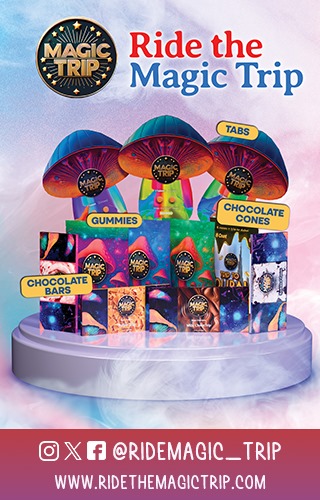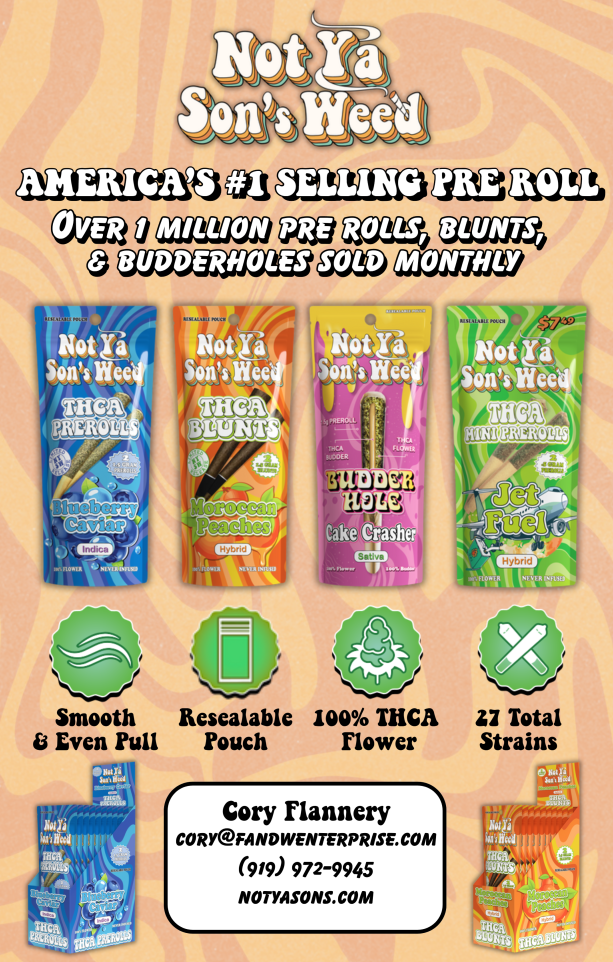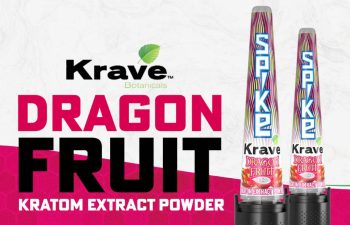
It wasn’t long ago when it was the norm for glass artists packing Pelican cases filled with their latest work to personally visit smoke shops hoping to make a sale. The Internet has made that market system more convenient, but it also represents a catch-22 in that there’s no longer a personal connection between the people making the art and the people selling it.
“Without that connection, there aren’t any real stories to tell to help promote that artist and their work,” says Jordan Horst, owner of Waldo’s Wonders, a glass art wholesale business bringing the best work from glass artists to smoke shops all across the country.
Jordan rolls up 75,000 annual miles in his travels, and a few years ago, he visited cannabis culture retailers in all 50 states including Alaska and Hawaii. When Jordan visits a shop, he comes fully loaded. Along with headier glass pieces, it’s not uncommon for him to have fifty cases of production pieces priced under $30.

“No matter what, every shop is going to find something in my inventory that they will be able to sell to their customers,” he says.
Jordan got his start hawking souvenir pipes to campers at music festivals. When he realized he could make a living following festivals, he hit the road in his 1989 Chevy Jamboree motorhome, picking up product from a glass studio in Colorado and also selling it to smoke shops as far away as Maine and the East Coast.
“I owe everything to glass,” Jordan says. “It’s taken me so many places and introduced me to so many people — there’s just so much that I’ve been able to experience because of it.”

Early on, Jordan was also partners with smoke shops in Boston and Providence, so he has authentic understanding of how glass art can bring a sense of legitimacy to local smoke shops still digging their way out from being thought of as underground businesses.
“The shops that are going to be successful going forward are the ones that keep up to date with the industry and continually bring in new products — they need to be very diverse and have whatever a customer might want,” Jordan says. “American glass will always be a huge part of that mix.”

“A lot of younger people are also really starting to collect work from specific artists, and they’re more willing to spend the money to get the pieces that they want,” he adds. “There’s a real vibe towards the love of glass that’s coming back around.”
Jordan says one of the biggest misconceptions is that the average customers won’t shell out more than few Hamiltons to cover their smoking needs.
“Sometimes when a store places a big order for really inexpensive stuff, I’ll kick in a few of the higher end pipes just to prove to them that they will sell — it works every time,” he says. “I try to encourage shops to carry some of the higher end pieces, even the better- quality production spoons and chillums, because everyone wants a nice pipe. I don’t really sell anything over $400 wholesale, so it’s something they can sell and not just stare at for the rest of their lives.”

Jordan’s goal for Waldo’s Wonders, officially founded in 2016, was to create a brand recognized for promoting high-end art, but also pieces that are more affordable to the everyday smoker without sacrificing quality.
“I’m very picky because I really care about what the consumer is getting in their hands,” he says. “I look at everything from the preciseness of the carb hole to the thickness of the glass and the strength of the joints. If someone is cranking out fifty spoons for me, I want every single one of them to be perfect. When I sell to a shop, I want them to be assured that the same pipes they order are the same ones that are going to show up.”

Now that Waldo’s Wonders is a well-known distributor, Jordan has no trouble finding new artists to represent. Actually, more often than not, they find him.

“I get hit up about five to 10 times a week by different artists from all over the United States,” Jordan says. “If an artist is professional, and sends pricing and pictures, and I’m interested, I’ll definitely work with them. The other thing is that the artist needs to be honest about how much they can produce and how much they already have on hand because I don’t want shops to be waiting on orders.”

One big advantage for shops in going through Waldo’s Wonders rather than dealing directly with local glass blowers is that they’re not competing for customers.
“My artists do not sell on Instagram or post their work for sale anywhere online,” Jordan states. “I’d much rather encourage my artists to promote the shops where their work can be found. It’s more effective for the artists to give a shout out to the retailers because collectors aren’t really following the shops, they’re following the artists.”

“I’m very big on sharing the background and ‘story’ of the artists I represent. It could be about their family, their hardships, how lucky they are to work for themselves, what music they enjoy or how they’re saying, ‘F’ the government,” Jordan adds. “It’s especially valuable for store employees to have that information because they’re the ones that are really sell the stuff, and when a customer walks into a shop they can tell just by the vibe how much they care about their glass.
“The more things that shops want, the more I can bring to them. I love helping shops promote the glass art culture — I find the artists and do all the dirty work so shops can get down to business.”
















